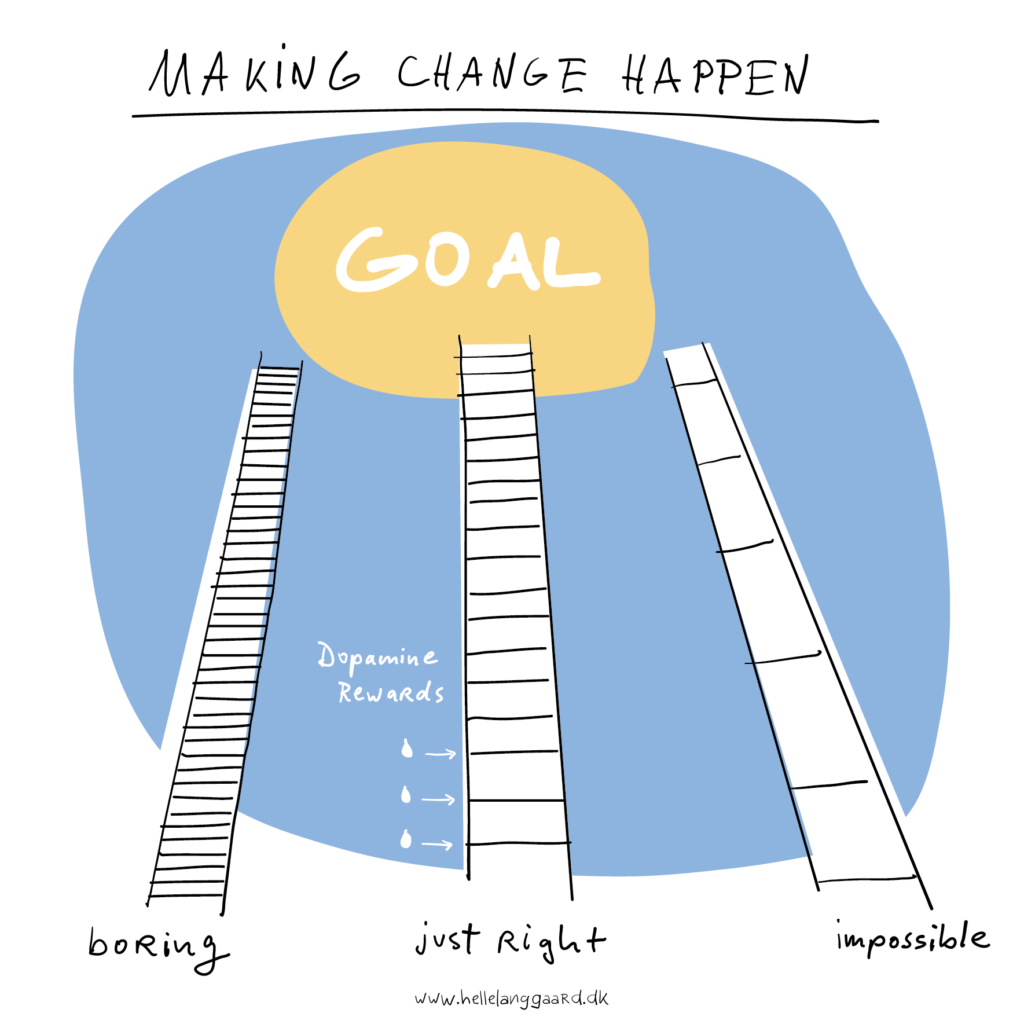The science behind change…
Udgivet d. 15. March 2024
Have you ever wondered how to make change possible?
Behind every transformation is the science of neuroplasticity. Understanding the mechanisms at play enables us to establish new habits and overcome challenges that once seemed insurmountable.
The learning zone
Learning and change drive the brain into a state of uncertainty. Embracing this discomfort is key to growth, as it is within the “learning zone” where real progress is made.
Unlike the comfort zone, where familiarity reigns, or the panic zone, where the reptilian brain takes over, the learning zone is where transformation thrives.
The size of the change must be just right – not too small, so that apathy occurs, and not too big, so that panic is induced.

Neurochemical rewards and new habits
Change happens in small steps, with each step marked by small successes. These victories trigger neurochemical rewards, such as the release of dopamine, which reinforces the desired behavior.
By anchoring new habits at the precise moment when old, unwanted behavior starts, we can consciously choose the path of change. Research suggests a narrow window of 150 milliseconds for decision making, highlighting the importance of being aware of opportunities for behavioral redirection.
Through repetition, the new behavior is learned and forms new nerve pathways that anchor the habit. Extensive research into the brain’s plasticity demonstrates its remarkable ability to adapt and establish new connections in response to change.

QUESTIONS FOR REFLECTION
- Which smaller steps are available and relevant to achieve your bigger goal, to make it become realistic?
- What do you really wish that you could change in your life, however were not able to, – yet?
Partnership with your coach
Your coach acts as a partner on your transformation journey. She helps identify areas for change and define actionable small steps towards your desired results. Clarity and simplicity are paramount in shaping the new behavior. For example, interactive exercises such as role-playing can help practice unfamiliar behavior, as a starting point for new habits.